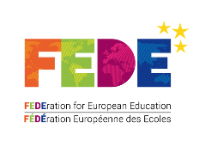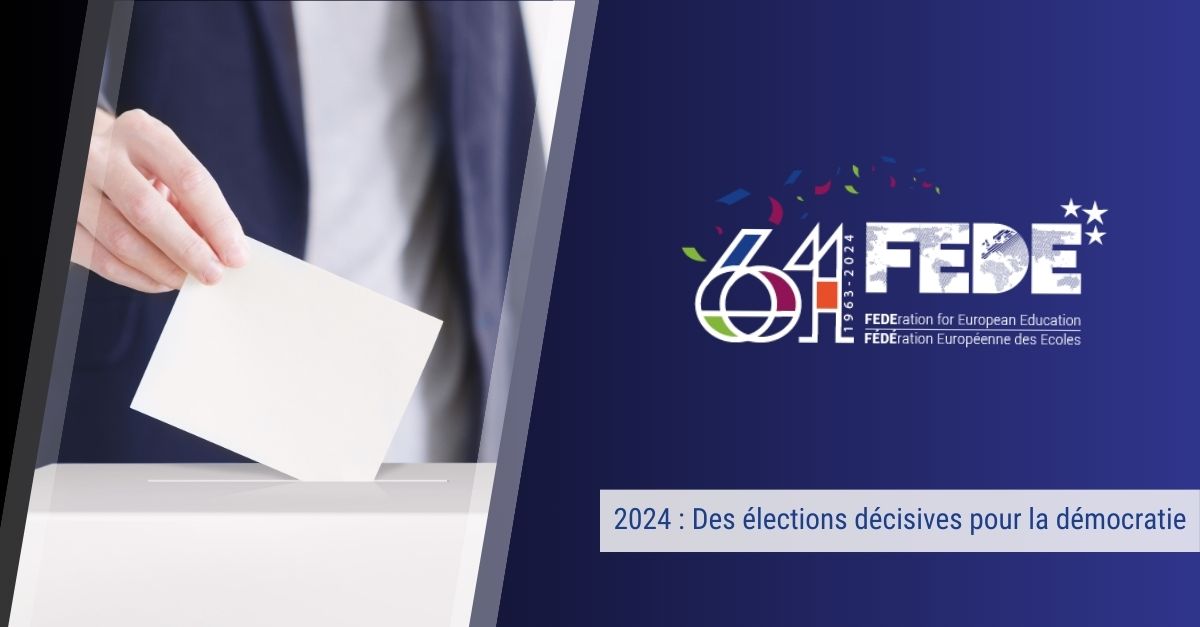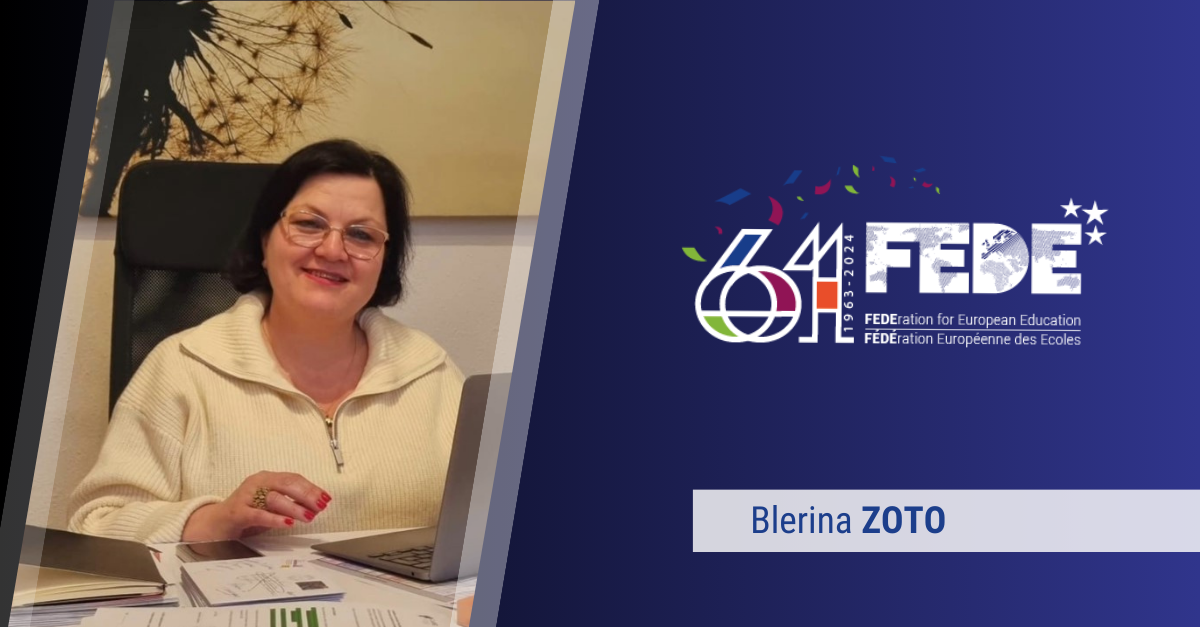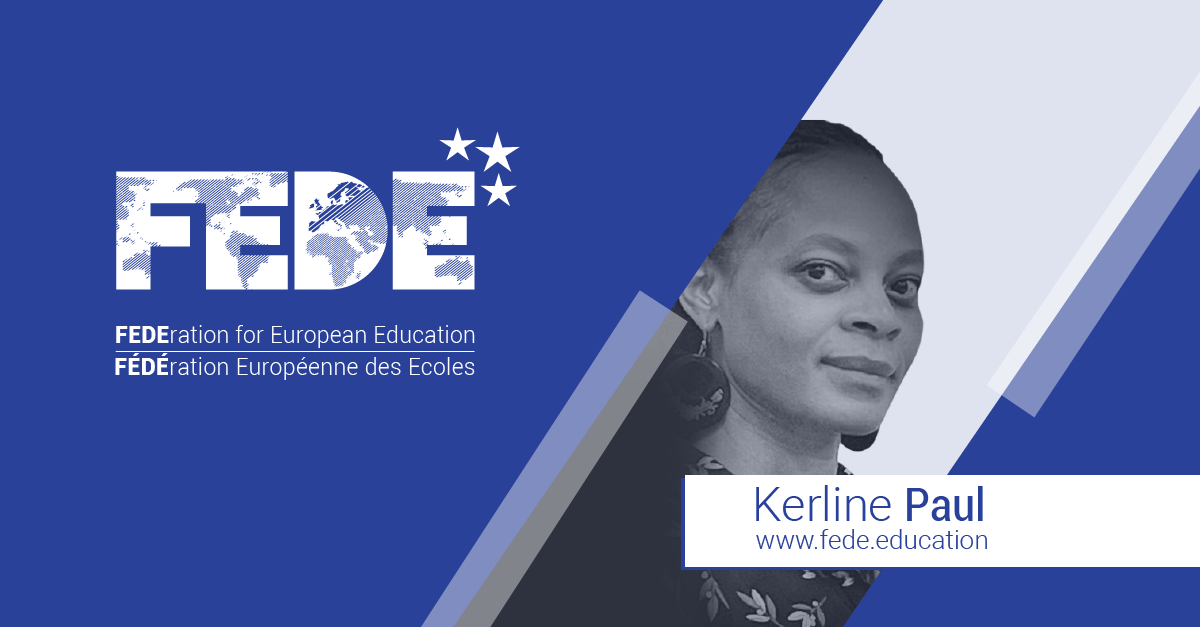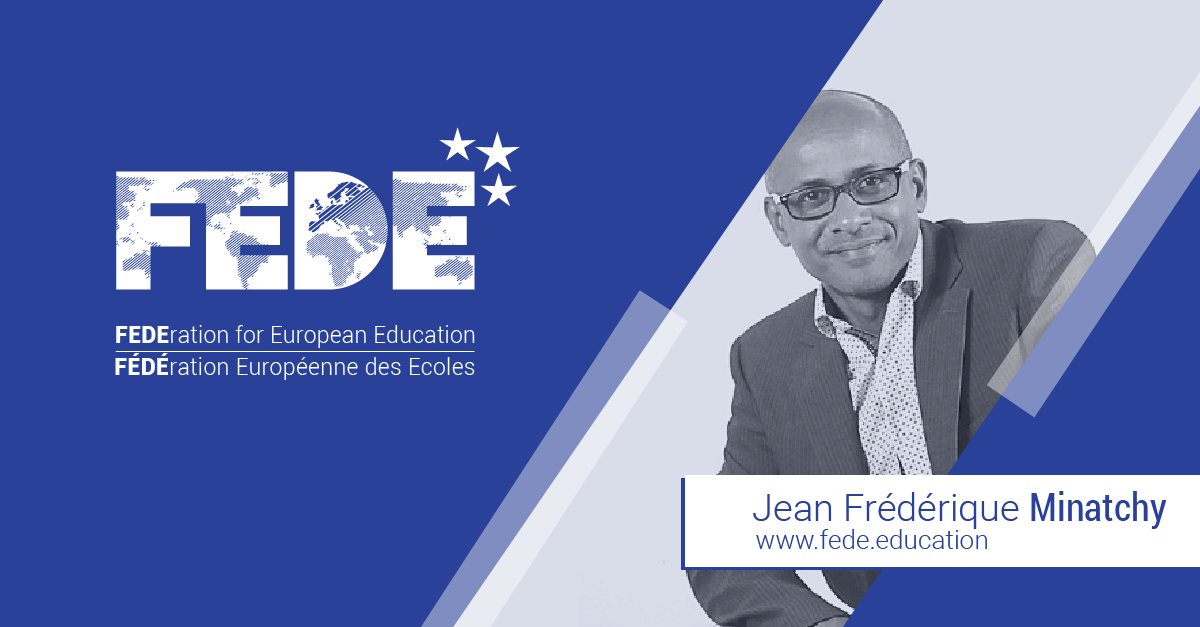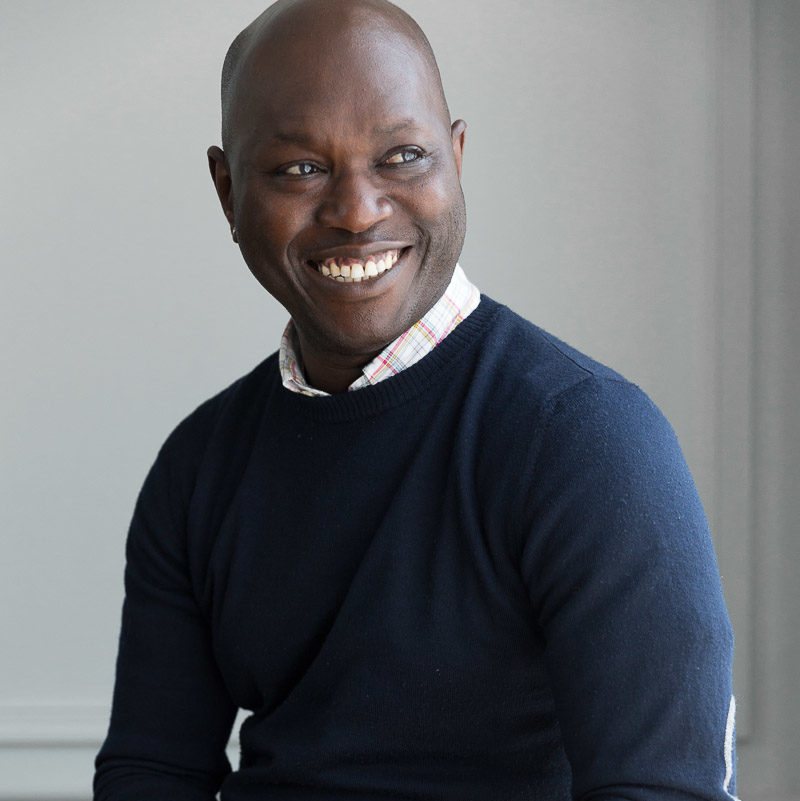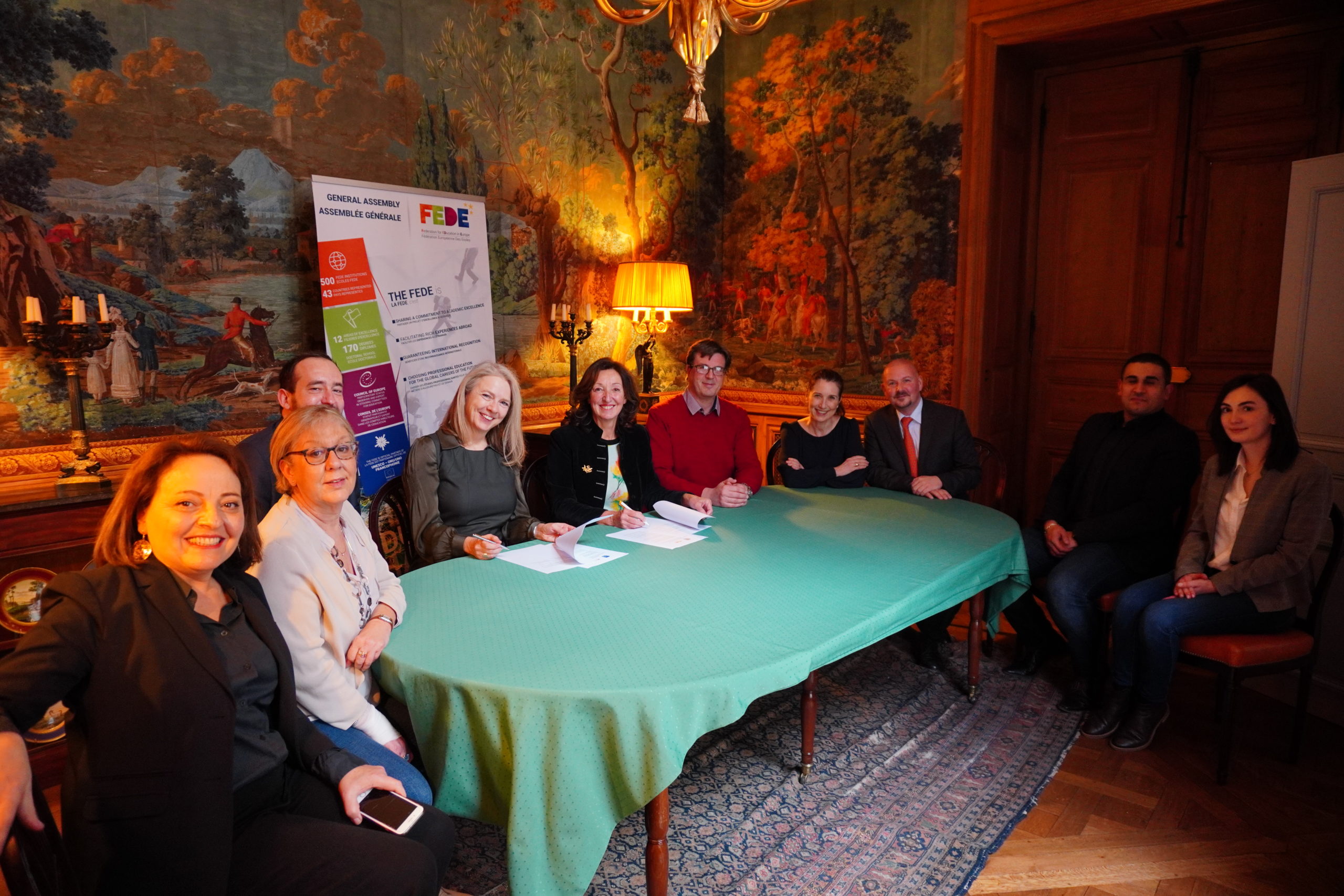FEDE ACADEMIC CONFERENCE 2023
Theme: Education, citizenship skills and the workplace
Date: Monday 20 November 2023
Time: 14:00 to 16:00 (Paris time)
Location: Online – https://bit.ly/3RTlkZE
With the experts:
At its 2023 Academic Conference, the FEDE will bring together citizenship skills and the workplace. Skills can be defined as practical and functional forms of knowledge but also as ways of adjusting, or re-adjusting, to diverse opportunities and situations.
The concept of ‘skills’ has an evident application in the workplace. But can it also be applied to citizenship? Is the notion of ‘citizenship skills’ readily understood? Citizenship skills can facilitate interaction within a family, village, town, region, country or group of countries, as well as between individuals and their environment. They cover everything (and more) from a greater awareness of a society’s ethical values, to involvement in democratic life (for example, voting in elections or volunteering) and critical thinking, self-awareness, openness to others, and knowledge of one’s rights and duties as a human being.
Can such skills be taught? And how can workplace citizenship promote citizenship skills more generally? What linkages are there between citizenship in the workplace and citizenship skills across the board? These are just some of the questions that will be discussed this coming Monday 20 November by the international experts invited to the FEDE’s Academic Conference on the topic ‘Why are professional skills inseparable from citizenship skills?’.
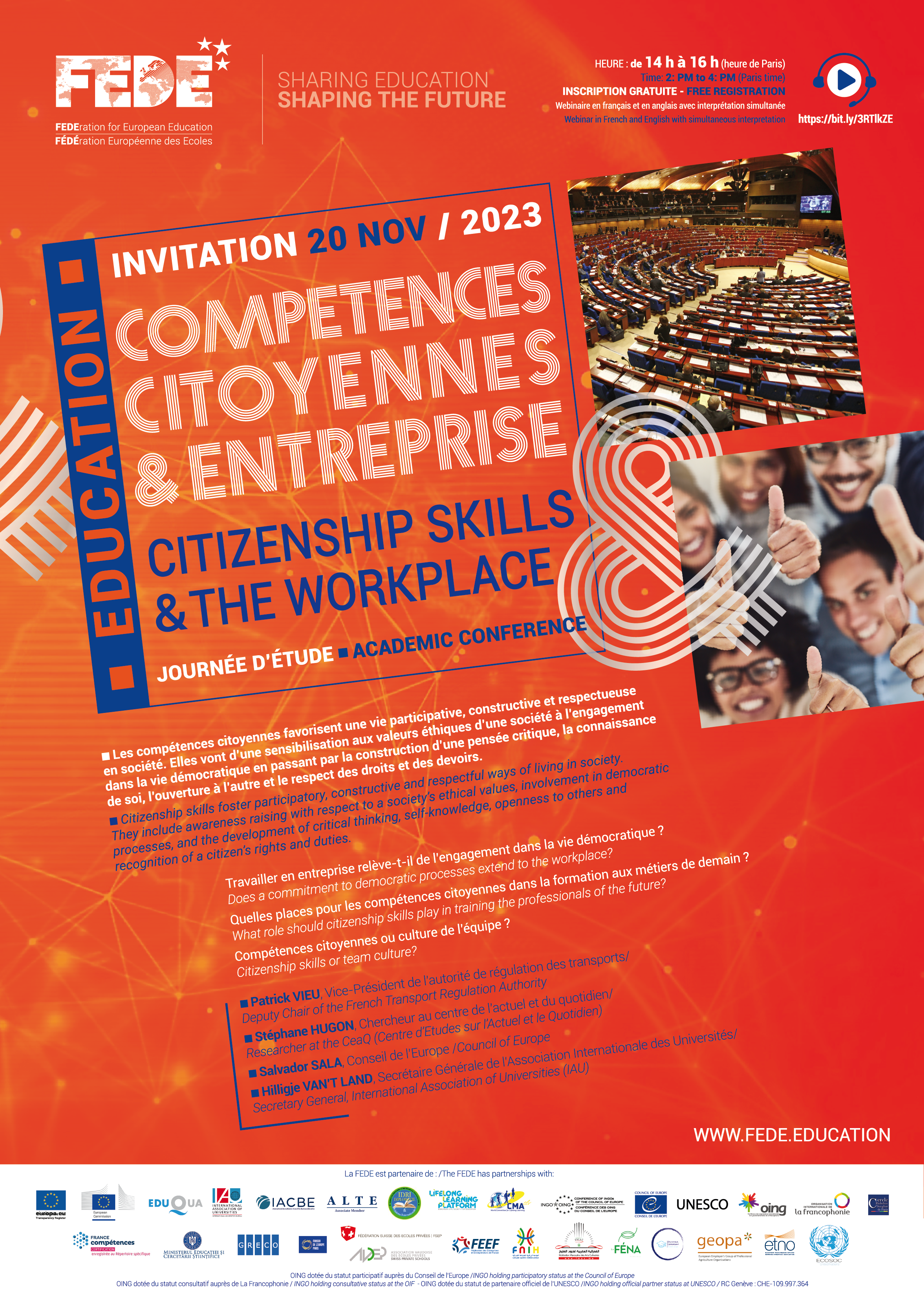
A look back at previous editions
Theme: Education and Artificial Intelligence (AI)
Use of artificial intelligence in education and artificial intelligence literacy
According to the 2021 Unesco report “Artificial Intelligence (AI) and Education: A Guide for Policy Makers“, AI will be worth an estimated $6 billion in education by 2024.
Artificial intelligence (AI) is having an increasing impact on education, generating opportunities but also many challenges. But education in AI is not only about teaching and learning with AI, but also about teaching and learning about AI (AI literacy), addressing both the technological and the often-forgotten human dimension of AI.
Please listen to the podcast featuring the highlights of this webinar:
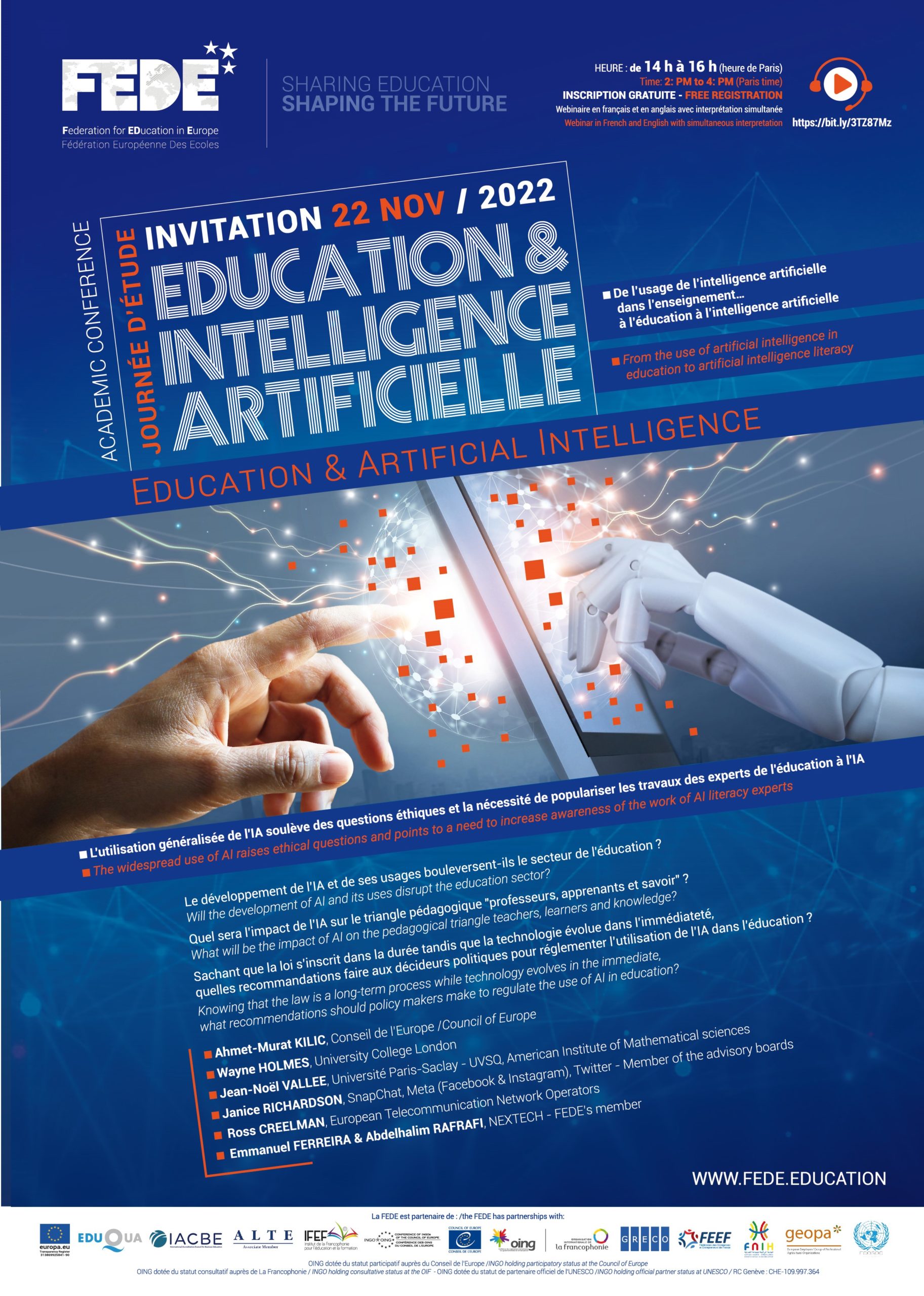
Theme: New job roles in the world after Covid-19
Date: November 10, 2020
Time: 9.30am to 12am
Location: Webinar format
The aim of the FEDE’s full- and half-day academic conferences? To show that economic ambitions and public concerns can – and must – coexist. Having previously discussed religion in the workplace (2017), 21st-century management (2018), and respect in the workplace (2019), in 2020 the FEDE has decided, in the context of the current pandemic, to focus on new job roles in the world after COVID-19.
If you want to know whether a job is ’useful’ or not, just imagine the effect on society if it were to disappear. David Graeber, who died on 2 September 2020 at age 59, had already sounded the alarm in his book Bullshit Jobs. In 2020 we have seen the truth with our own eyes: ‘Live in lockdown and see what happens to different types of jobs.’
The point is clear: many of those that have been under intense pressure to keep our society functioning belong to professions that are all too often despised; meanwhile, many more prestigious, better-paid job roles are far from essential.
How, then, can we define the usefulness of a job? Does the smooth running of society depend on our ability to live together harmoniously? What criteria should be used? Is the usefulness of a job the same in developed and less developed countries? Has the current situation bolstered certain professions in the short or long terms? Is public opinion changing, or is society changing?
These questions will be fuel for debate at the upcoming FEDE Conference entitled New Job Roles in a Post-COVID World. The conference will take place next Tuesday 10 November from 9.30 a.m. to 12.00 a.m. (GMT, Paris time) in webinar format.
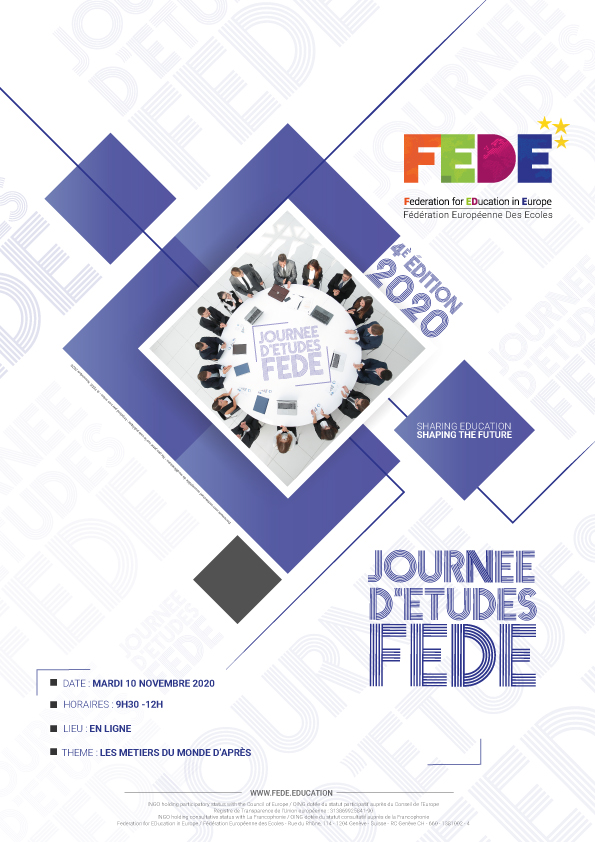
Online Study Day 2020: Why is it imperative to think about work in a new and contemporary way?
Why do we need to adopt a new, contemporary approach to the workplace? This was the question posed by Jean-Louis Bischoff, Director of the FEDE Doctoral School, during the half-day FEDE conference held last 10 November. It is a key aspect of the research on future job roles that Professor Bischoff is carrying out at the FEDE. He is now preparing to publish the proceedings of the conference, which was greatly appreciated by our members.
The event took place via videoconferencing with simultaneous French-English interpretation. It enjoyed a large turnout, with the debates taking place live and via a chat function that allowed the participants to build on the discussions.
Benoit Rico (a FEDE doctoral student) asked a number of questions, in particular concerning the impact of the loss of a part of non-verbal communication and the notion of ‘environment’, which might distort communication between the emitter of a message and its recipient. Afterwards he said that ‘the quality of the speakers and their discussion meant that I garnered lots of relevant information for my research’.
The talented sociologists (Stéphane Hugon and Antony Mahe), psychoanalyst (Fréderic Vincent) and ‘men of action’ (Thierry Lassalle, Directeur of Human Resources at Artelia, and François Venutolo, anaesthetist at Gonesse Hospital) exchanged a number of innovative ideas concerning remote working, useful and collaborative work, and digitalisation.
Feedbacks from speakers :
Antony Mahé: ‘One of the rare conferences that aren’t at all boring; the format is very constructive.’
Thierry Lassalle: ‘Very interesting indeed. The online format did not impact on the quality of our discussion. Hold another one soon!’
Stéphane Hugon: ‘I enjoyed it very much.’
Patrick Roux, President of the FNEP: ‘A great conference. Well done.’
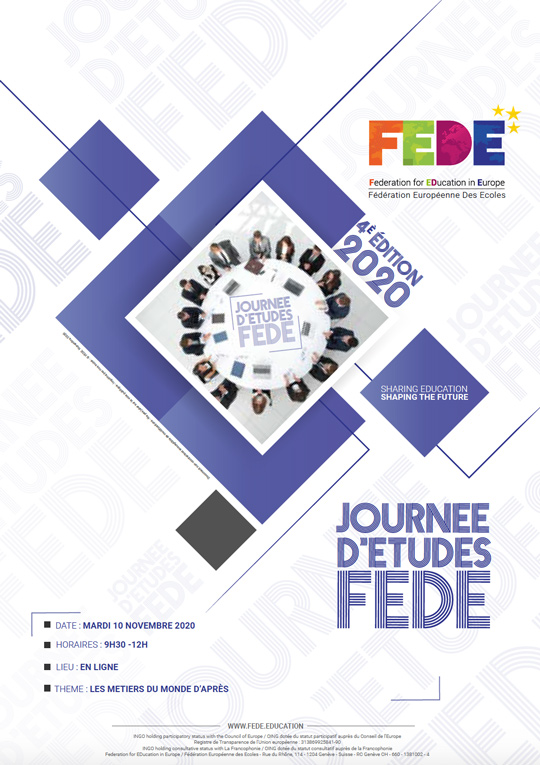
The 2019 academic conference on the theme of respect in the workplace
Almost 200 students attended the FEDE Academic Conference held on 19 November 2019 at the City Hall of Paris’s ninth arrondissement. Sponsored by Thierry Jadot, CEO of the international communications group Dentsu Aegis, the event was just as exciting as anticipated. This year it was attended not only by members of Paris-based FEDE institutions (COGEFI, ICOGES , ITIC, ESMOD, HEJO and others) but also representatives from institutions from the South of France (ESTC Marseille), the Hauts-de-France region (Maison Familiale Rurale de Rollancourt) or Perigueux (Perigueux Business School). At the end of the conference, both audience and speakers were full of enthusiasm. Thierry Jadot said he was ‘delighted to have participated in such a fruitful discussion’, while Marie Florence Robert from Nervet Consulting wrote that ‘[t]he high-profile speakers gave me much food for thought on recognition and trust in the workplace. Thank you for organising this event! I also very much appreciated your students’ thoughtful attitude.’ Marie-Thérèse Camus (Director of Education at ITIC) wrote that: ‘Our students and their teacher Eric Déru very much appreciated the quality of the speakers and the programme of events.’ Finally, Alex, a student at HEJO, described the day in simple but eloquent terms: ‘It was very, very interesting.’
Feedback from students of the ESTC (Marseille, France) who attended the Academic Conference
‘It was a real opportunity to take part in the seminar on the theme of the respect in the workplace. I appreciated the diversity of the speakers and the opportunity to exchange with them on the different topics’ Audrey Portelli
‘This seminar was very informative and the statements made by the various speakers at the round table were very interesting. All participants were able to take part in the discussion and that contributed to a captivating exchange, especially since respect in the workplace is a relevant topic’. Léa Cieplik
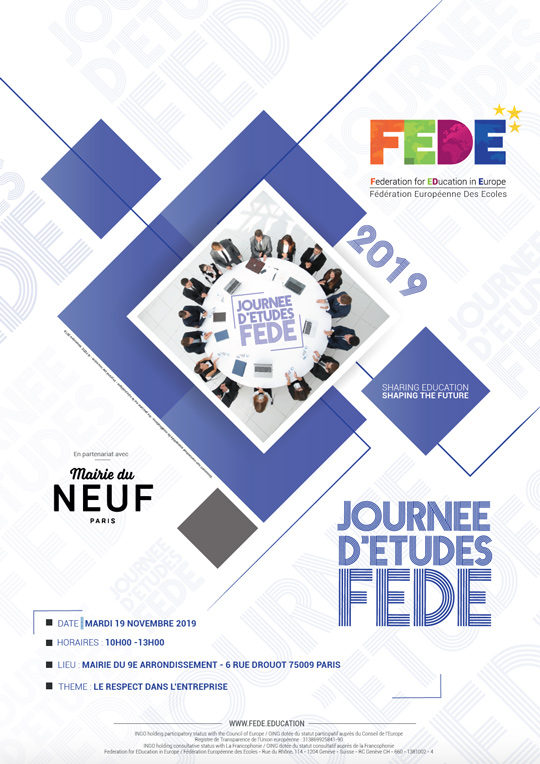
A look back at the 2018 edition : Management in the 21st century: which faces for which managers?
Generation Z has brought to the workplace a new set of social codes and professional aspirations that have forced businesses to rethink their approach to management.
How can we meet the demand of 15- to 20-year-olds for transparency and flexibility? How can we adapt to their appetite for new technology?
Managers are at the forefront of the rapid changes taking place, and their role is, consequently, also undergoing radical transformations.
Attended by Clarisse Angelier, General Delegate of France’s National Association of Research and Technology (ANRT), Antony Mahe, sociologist and Research Director at Eranos, a research and consulting firm, and Daniel Peyron, former Director of Groupe Sup de Co La Rochelle, the conference on 6 November will provide an opportunity to debate future management challenges and explore the skills needed to address them.
The conference will take place in the morning and will last three hours. There will be two roundtable discussions focussing on the following themes:
- How is Generation Z influencing management styles?
- What new management profiles might emerge?
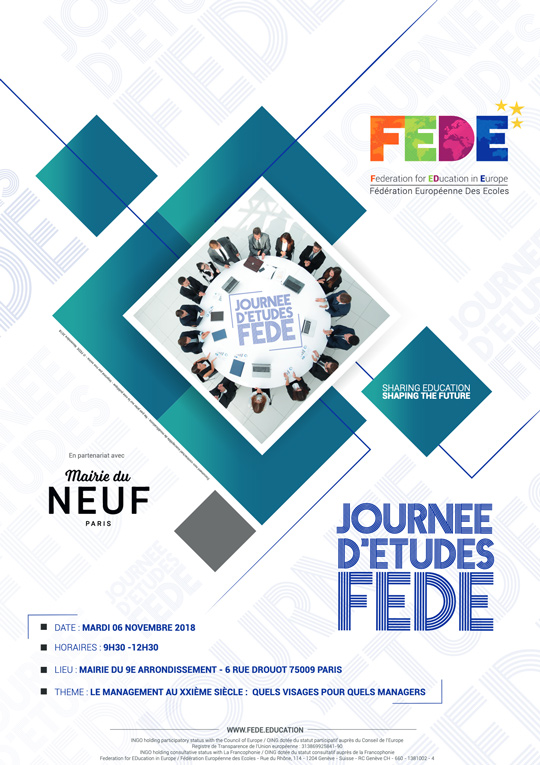
Claude Vivier Le Got
introduced
the Academic Conference
presenting
the FEDE DNA
Emilie Coutant, Anthony Mahe (sociologists), Jean-Louis Bischoff (FEDE research director) & Dominique Carlac’h, 2018 conference sponsor, spoke in the 1rst table
A most
listening
room
People
in the public
took the opportunity
to ask questions:
here Farhang Ghassemi
animated the debates.
2024: Decisive elections for democracy
The year 2024 promises to be a period of electoral density unequalled since universal suffrage was first introduced in 1792 by a pioneering country, France, at a time when only men had the right [lire plus]
Women’s Day: Challenges for 2024 – Meeting with Blerina Zoto
To mark the 61st anniversary of the FEDE and International Women’s Day on March 2024, we had the privilege of meeting Blerina Zoto, member of the FEDE Executive Board. An Albanian-Swiss diplomat, human [lire plus]
Kerline Paul: ‘Boosting the identity and reputation of solidarity-based economics’
Kerline Paul has worked as a bilingual executive assistant for over 20 years. In preparing meetings and files, in organising seminars and training courses, and in managing customers, she has honed her capacity for [lire plus]
Jean Frederic Minatchy wants to find a fruitful, human way to manage
In 2012, Jean Frédéric Minatchy set up a firm specialised in training (coaching and professional mentoring). He has also continued his career as a teacher, lecturing at Néoma Business School and the Université de [lire plus]
Interview with Dr Alioune Diaw – Chairman of the FENA
On 28 October 2021, during the FEDE’s General Assembly, the FEDE and the FÉdération française des Écoles de NAturopathie (FÉNA) signed an educational memorandum of understanding . It addresses, in particular, skills and other [lire plus]
Memorandum of Understanding between the FEDE and ETNO
On 14 February 2022, the Chairwoman of the FEDE, Claude Vivier Le Got, and the General Director of the European Telecommunications Network Operators’ Association (ETNO), Lise Fuhr, signed a memorandum of understanding at the [lire plus]
